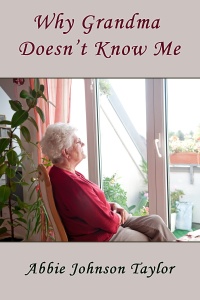The tunnel was cold and dark. There was no light anywhere. I was young and healthy and had everything going for me; surely it wasn’t my time, I thought, as I stood, wondering what to do.
I shivered and realized I should start walking and hope to stay warm. That I did, and soon, I came to the light at the end of the tunnel. To my relief, that light turned out to be the sun streaming in through my bedroom window.
***
Thanks to GirlieOnTheEdge for inspiring the above flash fiction piece with her six-sentence prompt for this week in which the given word is “light,” and the idea is to write something in exactly six sentences, using the word at least once. You can click here to participate in this week’s hop and read other six-sentence creations. Thank you for stopping by.
 Photo Courtesy of Tess Anderson Photography
Photo Courtesy of Tess Anderson Photography
Photo Resize and Description
by Two Pentacles Publishing
I have great news! For those who use the National Library Service for the Blind and Print Disabled in the United States, Why Grandma Doesn’t Know Me is now available in an audio format from their site. To download this book click here.
If you haven’t already done so, please subscribe to my email list to receive my monthly newsletter and other announcements. This is a one-way announcements list, meaning the only messages you’ll receive will come from me. So, you can rest assured that this list is low-traffic. Send a blank email to: newsfrommycorner+subscribe@groups.io You’ll receive a confirmation email. Reply to that with another blank message, and you should be good to go.
New! Why Grandma Doesn’t Know Me
Copyright 2021 by Abbie Johnson Taylor.
Independently published with the help of DLD Books.
Photo Resize and Description
by Two Pentacles Publishing
Sixteen-year-old Natalie’s grandmother, suffering from dementia and confined to a wheelchair, lives in a nursing home and rarely recognizes Natalie. But one Halloween night, she tells her a shocking secret that only she and Natalie’s mother know. Natalie is the product of a one-night stand between her mother, who is a college English teacher, and another professor.
After some research, Natalie learns that people with dementia often have vivid memories of past events. Still not wanting to believe what her grandmother has told her, she finds her biological father online. The resemblance between them is undeniable. Not knowing what else to do, she shows his photo and website to her parents.
Natalie realizes she has some growing up to do. Scared and confused, she reaches out to her biological father, and they start corresponding.
Her younger sister, Sarah, senses their parents’ marital difficulties. At Thanksgiving, when she has an opportunity to see Santa Claus, she asks him to bring them together again. Can the jolly old elf grant her request?



